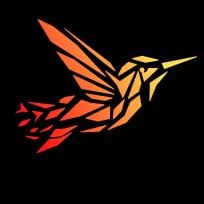In the shadow of a potential ceasefire, the situation at the Rafah crossing in Gaza has taken a grave turn. As the sun rose over Gaza, an Israeli tank brigade took control of the crossing, the last passageway for essential goods and aid into Gaza. This strategic move has effectively isolated nearly 2.3 million Gazans, cutting off access to vital resources and a route to safety. A poignant symbol of this harsh reality is the crumbled remains of the “I love Gaza” sign, a casualty of the conflict that underscores the deepening despair.
The Rafah crossing is not just any border; it’s the lifeline for the Gaza Strip, historically controlled not by Israel but by Egypt and Gaza. This shift in control came just hours after celebrations of a rumored ceasefire, brokered by Egypt and Qatar and accepted by Hamas, filled the streets. The joy was short-lived as Israel rejected the ceasefire, prompting renewed airstrikes and sinking Gaza into deeper despair.
The seizure of Rafah has drawn sharp criticism from the international community. The United Nations and various aid organizations have warned of catastrophic impacts, with essentials like clean water and electricity now cut off. The UN’s response highlights the devastating human cost of these strategic decisions in conflict zones.
As Israeli tanks stationed themselves at Rafah, it became clear that any hopes for a ceasefire were premature. The takeover was a response to recent hostilities and seen as essential by Israel to prevent further attacks and manage the conflict’s outcomes. However, this military strategy leaves countless civilians in a precarious position, facing an uncertain future without access to basic necessities.
Despite the dire circumstances, there remains a flicker of hope. An international push for a ceasefire continues, with a detailed proposal suggesting a phased cessation of hostilities. Yet, as airstrikes intensify and the military presence solidifies, peace and safety for the residents of Gaza seem increasingly out of reach.
As the world watches and waits for a resolution, the question arises: what role should the international community play in such conflicts? Should there be more active interference, or does that pose its own risks? These are pressing questions that require thoughtful consideration as the situation in Gaza continues to unfold. https://youtu.be/LkkM0_Pdjec?si=DFSnxchbSs7Gh-I8
